Welcome, Domingo.
Hey, thank you. Thank you for having me.
It’s great to have you, you are awesome. I’m really excited to just dig into all these exciting topics that a lot of people are unfamiliar with. Maybe you could share a little bit of your kind of your background around how you got so involved in this space of offshore investments, trusts, IBCs, international business corporations, and that sort of stuff.
As an entrepreneur, when you start expanding your knowledge into different areas, you think it’s wrong.
That’s an interesting topic. I’ve always been a serial entrepreneur. When I first started my business, my first business back in the 2000s, I was mainly focused on internet marketing, doing search campaigns, and so on. Running leads to other companies. And what I realized was a lot of my business started going offshore. A lot of people contacted me from Europe and Latin America, and they wanted to send payment, and it was just a very odd feeling. As an entrepreneur, when you start expanding your knowledge into different areas, you think it’s wrong – especially when you take a look at all the newsfeeds out there about money laundering and doing business offshore is a bad thing and from the IRS.
When you see all that, you’re really reluctant to expand your knowledge and expand your experience. I started looking into it in the early 2000s. And as I started growing and growing further as an entrepreneur and these successes, it really was an eye-opener when I started traveling abroad really opened my eyes. I took a position as the CEO of a publicly-traded company that did business in 6 different countries. That’s when I started seeing that international business is really a market that a lot of entrepreneurs focus on and think of the world as a small space, but it is actually it is very large. And it is always best to know who your end client is. And as I started doing business and did more and more, I started looking at tax strategies and investment strategies outside the U.S., and that really expanded my knowledge. That’s really what I contribute to a lot of Escape Artists over the last 4 years.
Right because some of the biggest companies out there have really thought through their tax strategies and saved literally billions of dollars. Like, Apple, I recall their setup. I think their headquarters is in Ireland, and with Irish law, then – how does this work? So in one country, you’ll have the headquarters being defined as where the board of directors is, and that might be Irish law. In US law, it is where the company’s headquarter offices are, and that’s where the company gets taxed primarily or something like that.
Basically, because the Board of Directors is not in Ireland and the office’s headquarters are not on U.S. soil, there’s this sweet spot that Apple occupies where their tax rate is really low because of this no man’s land they’re in. It’s genius, and it’s saved them billions of dollars in taxes. Thinking this through is really important whether you’re a billion-dollar corporation or a startup or a small business or a medium-sized business, or you’re a non-profit. Thinking through your tax strategies and asset protection because it’s not just the taxman that you have to worry about or be cognizant of. It’s not that you’re evading taxes – you’re just being strategic about minimizing your tax liabilities. It’s also about asset protection from people who might sue you.
Saving 5 or 10% on your taxes a year can make a big big difference for you.
That’s correct. I think you will discover so much there. If you look at it from this standpoint, a lot of entrepreneurs are not ready to expand and do an IBC or defer their taxes to other times, but if you look at your business currently, there are some easy tax strategies that people use. Like say, hey, when incorporating in Nevada saves you money on state taxes, where there are none. Whereas Florida or Wisconsin, where there is heavier taxes than in New York or California. Even saving 5 or 10% on your taxes a year can make a big big difference for you. But you need to look at your asset base. This is where Apple was really, really smart. They do pay taxes.
Let me make this very clear. Any business in the US, they pay taxes for any US corporations that they have. But you have to imagine that Apple is a global company. The US is only a small market, only 300 million people, where there are 7 billion people on the earth. When you hear them talk about selling 100 million cell phones, and 80% of them are outside the US, those are sold in their corporations that are offshore. They are able to tax defer, they are able to use tax strategies to help them not pay taxes on that money at all. So there are different ways to look at it.
From an asset protection standpoint, you need to understand that the law of the US only stands within the US. For example, if you get in a car accident and someone tries to sue you for your assets, and they are located in a state, there’s a good chance you’re going to end up in court and pay a lot of money to defend your assets. But if your assets were owned by an IBC, an international business corporation or company offshore, in Belize, Panama, St. Kitts, St. Vincent, or these places, there is no U.S. jurisdiction to that asset there. No one is going to say, “Hey, you must bring that asset back into the States.” It is a way to protect your wealth and start growing. I’ll tell you right now. It doesn’t require someone to have tons of wealth to do this. The secrets of wealth are being opened. You don’t have to have a big business to take advantage of this. You can have a smaller business. And as you grow, all the money that you save on taxes alone and the protection of your assets, you can reinvest it back into your business and really grow faster. That’s the way I look at things.

Right, because even if you are starting with nothing, if you create assets over time and you look at the law of compounding interest, just paying a third to a half of your income to the taxman, the number of years it takes to double your asset base just based on whatever 5%, 10% interest rate compounding, it massively drags out the number of years it takes to increase your asset base if you have this passive income money machine that is working on compounding interest. This is important for any size business, any asset base, any amount of wealth or somebody who’ s just starting at zero. Let me ask you this, Domingo. If I were looking to expand into foreign markets and I don’t have any income coming in internationally, does this still make sense to go offshore? If so, how do I get the most value out of making these IBCs, international business corporations, and perhaps offshore trusts and so forth?
Obviously, I’m always going to tell you to seek legal and tax advice from professionals. I can only share with you what my experience has and over the years being an entrepreneur. But, you’ll find out there, unfortunately, a lot of them don’t have the experience and say, “Stay away from it, there are other ways of doing it,” and it just seems like everyone has an opinion. But, the truth in the matter is: there is no better way to protect your assets. When you create this source of precious business by using special source codes, production secrets, or trademarks; however you want to call it. When you incorporate them in the US, you’re only protected by how the law will protect you, and that’s whatever the judge says.
If you’re going to start a business, take all your assets, create an offshore entity, and put all your assets in the offshore entity, that way, you’re well protected.
If you’re going to start a business, take all your assets, create an offshore entity, and put all your assets in the offshore entity, that way, you’re well protected. Even if you don’t have an offshore business. In today’s world, it will shock me if you don’t. I go to my clients all the time and say, “Look at your client base and tell me where they are residing.” You’ll find that 80% of your revenue is coming from offshore. Then, you’ll start taking a look at “Okay, that’s one thing.” You should create an IBC. Take your assets and have them go to the IBC so you can tax defer and have some tax strategies go to that income. Then, you start looking at other resources as well as offshore. It’s not just about doing business offshore, it’s about actually operating your business as well. A lot of people are using offshore services, from bookkeeping to accounting to customer management, from the Philippines, Mexico, and all over. So you’re doing business offshore already. There are a lot of things people can do. So you really need to take a step back, look at your business, and say, “What am I doing? What’s the right thing for me to do? And what can I do to protect what I’ve just worked so hard to build?”
Right, so that’s a great point. Even if you aren’t getting a lot of money coming in internationally, you’re probably spending money internationally. Probably. I have outsourcers that I use in Serbia and Russia and the Philippines and so forth, India, etc. It makes sense to have a company outside the US handling these international transactions and to park your assets, not just physical assets, but your IP, your intellectual property, offshore. So that it’s more protected in case of lawsuits or whatever.
Especially in the US, it’s a very litigious society, and you know you let somebody go, and they decide that that wasn’t fair, and they file a lawsuit against you. Or somebody doesn’t like you, and they decide to file a lawsuit against you. A lawsuit can be filed for any kind of reason. It doesn’t mean that they’ll win, but frivolous lawsuits are filed all the time. So this is really a great piece of advice. So let’s say you have an IBC or international business corporation set up. This means you run revenues that are internationally sourced revenues through that IBC – how does that minimize or defer taxes? Do you basically keep money over there, and yet I need money over here where I’m living in the States to live and have my nice lifestyle? So how does that all work?
Let me break it down simply. Let’s say you make $10,000/mo from offshore income. Then, you put that $10,000 into your IBC offshore. But you require $5000/mo living expenses. So you have $5000 in. You’re going to report to the IRS that you took that $5000 every month, and you’re going to pay taxes on that $60,000 minus expenses. But for the other $60,000 sitting in the bank account, you’ll file a document to the IRS and let them know that money is there. But, you’re going to defer. You don’t have to pay taxes that year on it.

This is what’s really great if you have long-term planning. A couple of years down the road, when you don’t have any outside source of income, you’re down, you decide to take the year off, and you’re going to travel. All that $60,000 x 2 because you’ve held out for a couple of years offshore, you can choose then that third year to take that $5000/mo and continue that payment, and you’re going to continue to pay taxes on that $60,000. That’s how you’re allowed to defer the taxes. A lot of companies use that benefit for themselves. it actually helps when you don’t – you want to watch what tax bracket you’re in – because after you hit a certain point, you don’t want to pay those 25 – 30% taxes. This is a great way to defer, and it works. And it’s legal, 100% legal. The IRS has this in its tax code, and it’s here to protect you.
Right right. So basically, you’re going to have this IBC collecting the international revenues, and this US source revenue comes into your US company. Whatever that breakdown is – US revenue vs. offshore revenue. So that internationally sourced revenue comes into the IBC. You pull whatever you need for living expenses and so forth, but perhaps there are some tax breaks you get in terms of expenses and whatever, right? The remainder sits offshore on that offshore bank account for whenever that entity, that IBC, you’re not paying US tax because it’s not you. The IBC is not one and the same as you. While it is sitting out there, doing business and retaining its earnings. Until you bring it in, you’re not paying US tax on that. This idea is also applicable to other countries, correct? If I’m Canadian instead of American, wouldn’t I also want to have an IBC?
That opens us another whole bucket of conversation there. The US is actually one that taxes you on your worldwide income. So the US does that, no matter where you make money. If you make a dollar in Malaysia, they want their taxes, their $.28. Canadians have a different policy. You’ll pay taxes when you live in Canada, but when you move outside Canada and live in Costa Rica or elsewhere, you don’t have to pay taxes because they don’t tax you on worldwide income. But, what’s happening in today’s world is that a lot of countries are starting to tax their worldwide income because they are starting to see what the US is doing with it. They are all falling into financial disarray, so this will help them save money, so they are starting to go after what the US policies are doing. You have to be careful because these policies are always changing. If you are a citizen, but you’re Australian or Canadian or from Central America, it’s always best to open an IBC just for tax strategies because most of them actually do work for most countries.
That’s a really crucial distinction. If you’re in the US, you’re living offshore, you’re making all your income offshore, the US still wants its 30%, you might be at a 38% tax rate. I live in California, and wow, it’s crazy, it’s like 14% state tax because the country is so broke. They make it hard for you to leave too. You can’t say, alright, I’ve paid enough to the state, I’m going to move to Florida, where there is no state tax. They make it really hard for you to go outside of the state and change your tax residency. They don’t want to lose that revenue. So this is a crucial point that you need the advice of a professional both legally and in terms of your accounting. Because trying to figure this out on your own or based on your buddies saying, “Hey, you should try this Puerto Rico thing that this loophole or whatever” – you don’t want to screw around and figure this out on your own. You need professional help.
Let me ask you if you’re going to have another base or another location – let’s say you live offshore part of the time or all of the time. Are there any countries that are highly advantageous to do so? For example, I lived in New Zealand for about 8 years, and it was paradise, it was beautiful and everything. But it certainly wasn’t a tax minimization strategy. Thankfully there was a double taxation treaty between the two countries – the US and New Zealand so I didn’t have to pay double taxes to each country. But it certainly wasn’t a tax minimization strategy because New Zealand doesn’t have a minimal tax structure or whatever. So what countries would be a good base of operations for a person to live and/or to run their business out of – and this is potentially 2 different places, right?

That’s correct. Actually, the first rule of thumb is – if you live offshore, and if you live outside of the US for more than 11 months/year, there are some tax breaks that you’ll get from the IRS that equals close to $100,000 per person. So if it’s just you, the first $100,000 you make there as an income is tax-free, and if you’re married, the first $200,000 you make is tax-free. That’s some benefits they provide if you live 11 months offshore, which is great. The second part is the questions about where to and which is the best for tax purposes – I think they go hand-in-hand. One, you have to kind of know where you want to go.
For example, very popular in the late 90s was Costa Rica for the US. A lot of Canadians as well. Costa Rica is a great place to live, cost of living is really cheap, you can make a decent living, and you can live like a king for $2000/mo. Good luck doing that here in the US. But what’s nice about it is if you live there, you’re just going to file the taxes as a citizen, and then you’ll get the $100,000 tax exemption every year. Have an IBC offshore, keep the tax exemption in, and keep some of the money offshore, it’s a great tax strategy. You can also do that in Ecuador. Panama is a great place to set up a business and live off some part of your expats.
And as far as Asia, you’re getting a lot of people moving to Thailand. Thailand is really big right now, the cost of living is cheaper and some tax benefits there. You got a lot of people in Singapore, Singapore is a little more expensive, it’s an expensive place to be. But, if you’re looking for a lot of tax strategy, Singapore and its dollar and economy is very, very strong. That’d be another advantage for you to have some currencies in the US and probably Singapore in the US. Just take a look at where you want to live. Make sure you go there for at least a month before you settle there. You don’t want to say, “Eh, let’s move it to Costa Rica,” and not like the food, not like the environment, not like the heat. And so definitely try different places out before you go out and settle there. But tax benefits, sure, there are a lot of benefits to living outside your country, whether you’re a US citizen, Canadian, or so on. There are a lot of benefits, and you really need to look into that.
Yeah, and not only that, but you get just kind of life experience benefits from living overseas and having a different perspective and life experience. It was hugely enriching for my family, particularly my kids, to live overseas for almost 8 years in New Zealand. Gave them a whole new perspective. Made them much more cosmopolitan and more discerning in many different ways. It was really quite a cool experience. One thing I did do, which I wouldn’t recommend these days, I’d advise against it, was just pick up and move without having done your due diligence ahead of time and figuring out if the climate and the culture and everything resonates for you.
I picked up and moved my family to New Zealand without ever having lived there or even having visited. I applied for residency and got in before ever having stepped into the country. I had the idea that it would be a good place to live. Turned out it was good – it worked out well, and it was good intuition, but that was a big risk to make that kind of commitment. I did make a trip out there right before we moved just to find a house to rent and pick neighborhoods, schools, that kind of thing. But still, it was kind of reckless. Still, do your due diligence, and spend at least a month really getting to know the area and the culture and everything before committing to a permanent or at least semi-permanent move.
Do your due diligence, and spend at least a month really getting to know the area and the culture and everything before committing to a permanent or at least semi-permanent move.
Now, you mentioned the fact that you might want to have some money in Singaporean dollars or whatever. Because not only are you sheltering that money from an asset protection standpoint, as you discussed earlier. But also, there’s an exchange rate differential from the country you spent time in even if you don’t live there, it’s almost like an investment strategy. The Canadian dollar might be a good buy right now. Caveats and disclaimers apply. I’m not giving tax or investment advice, this is an entertainment-only podcast. But still, it’s a pretty interesting opportunity to look at these companies and their exchange rates and where everything is going. It’s an investment strategy. So, what do you recommend in terms of currencies? Personally, do you diversify across a basket of currencies? Do you have just a couple of currencies that you keep your assets in? What do you do?
That’s a great question. I look at it not only from a currency standpoint but from an investment standpoint. So there, I have currencies in the US and Singaporean dollars because it is a strong, strong currency. I also have some of my investments in international real estate. International real estate and also actual gold that are stored offshore. It’s a great way to diversify. You know that gold is secure, and you know those real estate investments are secure. Most people don’t realize this is that there are a lot of places that are up-and-coming in Latin America, and you can make 200-400% returns on some of your investments over a period of a few years. That’s a great way to park money and let it sit there. Especially if you’re in an area that’s up and coming. It’s a great way to park $100,000 and take it out whenever you need it or sell it. From a currency standpoint, if you owned Canadian currency about a year ago, it used to be 1:1. Now, it’s actually stronger to the US. So 80 cents of our dollar is actually a dollar of theirs. If you had some Canadian dollars, you’ve actually made 20% of your money. That’s an investment thing that you have to really really take a look at. That goes up and down according to oils and other news they look at. It’s complicated. But I’m not here to talk about that, but it is a strategy you can use. Precious metals, real estate, currencies – a strong way to protect your assets and grow your investment portfolio.
Precious metals, real estate, currencies are strong ways to protect your assets and grow your investment portfolio. Click To TweetYeah, for sure. And so, let’s say that you are US-based right now and want to maintain your US residency, or at least you want to stay present in the US most of the year because of family and friends and maybe your kids are in school and you don’t want to pull them out. There are strategies that will allow you to have residency elsewhere. Like Panama, the residency requirement is 1 day a year, I think you told me?
That’s correct. Once a year, and the cost is very little. There’s a relationship between Panama and the US, and let me just put this out there as well – Panama uses the US dollar. When you go over there, you don’t have to worry about currency exchange, you know you just pay a lot less for a stake over there than you do here in NY or even California. The residency program in Panama allows you to diversify and get a residency somewhere else. It does require a small investment, sometimes as low as $5000 – $10000. St. Kitts is $400,000. Some European countries are $2 million and above. So it’s really dependent on what benefits you’re looking to get into.
Once you get residency, you can get a second passport, and now you’re really talking about protecting yourself from making sure your banking is offshore and your assets are protected in a different country. You can go play and live in a different country, and now you have residency and passports in different countries. You’re covering yourself with the five-flag theory that protects you overall. It’s always something to look into. As I was on stage, as we were talking about earlier, I was talking about, I referred to it as the Bourne bag – a bag full of different currencies and different passports. Obviously, it had a different meaning, and there was a different purpose for that, but from an investment standpoint, you look at asset protection and currency. It’s not bad to start thinking about it in that way so you can protect yourself overall. As hard as I have worked and you have worked to really build your businesses, there are just people out there that want to take it from you the moment that they see that they can gain from it. You just really have to protect yourself and get the right advice from legal, accounting, and so on. It really is important.
Take a look at where your citizenship is, your passport, residency, banking, and business. Make sure they are all in different countries, by doing that, you’re really going to protect yourself from disasters that could happen in the future.Domingo Silvas
Yeah. It’s time to stop thinking of yourself as just a citizen of the country that you live in. You’re a citizen of the world. And so the 5 flag theory, which I’d like you to expound upon, is really important for our listeners to expound upon and start implementing. Can you elaborate on that 5 flag theory?
Sure. If you just google 5 flag theory – you’ll find that it is a strategy to protect yourself overall by having 1. your citizenship base different from your residency, different from where you bank, different from where you have your business, and different from where you do investments and go out and play. And what that means is that if you’re going to live in Costa Rica, you don’t bank in Costa Rica, you bank in Belize. And you have your residency in Panama. And you go have fun in Ecuador. And you make your investments in Europe or Asia, or however you like. That way, you diversify overall, your portfolio, and you’re protecting yourself. Not really stocking in one place. A lot of us have all our money here in the US sitting in the bank, a lot of them just failed years ago. That’s not really protected. You have a business here in the US where anyone can sue you at any time.
A lot of people think, “Well, I am protected. I can just hire an attorney.” I don’t know about you guys, but paying $25,000-$50,000 to defend something you know you’re going to win, but you just spent $50,000 defending it is not fun. It’s not fun. The moment the attorney figures out your assets are offshore, you’re $5000 in, and they are going to say, “Well, there is nothing we can do”. We can’t go get that asset offshore. Belize and Panama are not going to listen to US courts. Take a look at that. Back to the 5 flag theory real quick. Take a look at where your citizenship is, your passport, your residency, your banking, your business, and where you play. And by doing that, you can make sure they are all in different countries, you’re really going to protect yourself overall from many disasters that could happen in the future.
Diversify your risk, assets, time and attention. Do not keep all your eggs in one basket.
Yeah, and to be clear, we are very much oversimplifying and glossing over this theory. It deserved a much deeper dive. You need to do your reading on it. Don’t just take this little podcast episode as your intro to 5 flag theory, we haven’t scratched the surface. But it’s really important, as Domingo says, to diversify your risk and your assets and your time and attention, too. Do not keep all your eggs in one basket. Case in point, if you have a US bank account and think, “Well, I’m protected. I have FDIC insurance”. Well, that’s only for $250,000, which I think is the maximum coverage. Let’s say you have $500,000, and the bank goes belly up. You are, at best, protected for $250,000 of that $500,000. But in reality, FDIC doesn’t have nearly the amount of assets to make good on failed banking institutions. I think for all the money that they are insuring, they only have what is it, 11% or even single digits of what they are protecting, that they actually have the cash to pay. Crazy, so at a minimum, diversify within your own bank. If you have to bank with the same bank and you’ve got $500,000, create multiple accounts, multiple checking accounts, multiple savings accounts, and spread that $500,000 across at least 2 accounts.
Yeah, I would even say bring it down to $100,000. When the FDIC brought it up to $250, I was really concerned because they could barely cover $100,000. So try to keep it as low as $100,000 per account. It’s a pain in the butt, but – and that $100,000 per account, that’s not the same bank, by the way. Different banks.
Yeah. That’s the worst-case scenario, at least you have multiple accounts in the same bank, but you want to have accounts across multiple banks, and as we’ve been talking, it’s actually better to have it across multiple currencies and across multiple countries, too. Right? So if one country’s currency goes down the tube, you haven’t lost a huge amount of your asset base. You want to diversify yourself across a basket of currencies because perhaps some of those currencies have increased in value over the time period instead of tanking as the one currency might have.
What about passports? Let’s say I only have a US passport, and I want to have another passport. I know from experience living in New Zealand I had to live there for 3 years before I could apply for citizenship and get a New Zealand passport. At the time, I didn’t see the value in it, I wish I would have known you back then. At the time, I didn’t see the value in it, so I didn’t apply for citizenship, and thus I don’t have a New Zealand passport. Having a passport, having multiple passports, of course, you have to check with your lawyer to see if it’s legal per country and so forth. I believe in the US, you are allowed to have 2 passports. If I’m a US citizen, I am allowed to be a citizen in another country, but it can’t be New Zealand now because I’m back in the States. I’d have to go back and live there for 3 years and then apply for citizenship. That’s not the case with some countries. I don’t even have to live there for some. In Panama, you have to be a resident for 1 day a year. Some countries will let you apply based on your heritage, you don’t have to live there. Let’s talk a little bit about that.
You want to diversify yourself across a basket of currencies because perhaps some of those currencies have increased in value over the time period.Stephan Spencer
Yeah, I think that’s the big one right there. Most people don’t know this, but ancestral backgrounds are really giving people a chance to get second passports from their parents or grandparents’ homeland. If your grandparents, for example, were born in Italy and then came here and you were born here, you can use your ancestral background to actually go get a passport and get an EU passport by using your grandparents because they were Italian citizens back when. Most EU countries are doing this, and Latin American countries are coming up with it as well. You’ll want to take a look at it because that is a process that will save you money, it’s gonna cost. You’re going to spend money to get that done, but you’re not going to spend nearly as much as trying to actually move to a country for 3 years, get the residency, get the citizenship, and then get the passport. This will actually be a process of months, and then get the EU passport which is very, very valuable. You have to look at it from this standpoint.
From a safety standpoint, people look at you as having a US passport, you’re a US citizen, and they are looking to do you harm. You have to protect yourself. Having an EU passport allows you into Europe with no problems, there are a lot of European countries that allow you to just get in without a VISA, so EU passports are obviously the strongest ones. Then you have to look at other ones that will require more visas. If you get one from Latin America, for example. There might be a VISA requirement to get into the EU, so you might have to look at that. The ancestral program is fantastic. I know a lot of people are doing it from Hungary, Austria, Italy, and so on. And a few countries in Latin America.
The benefit is 1. If you lose your passport in the US, the government has taken it away from you, how are you going to get out of the country? You’re literally stuck here. It’s hard to believe that only 15% of people actually have passports in the US, which is shocking. It’s a privilege in the US that they give you, and they can take it away from you at any time. So having another passport, it’s a way to protect yourself and get into other countries without causing a stir. There are a lot of benefits. As we mentioned on the show already, there is no way we can cover everything on this show. This is very 30,000-foot level material. But the information is out there, and it is incredible. Once you open your eyes and start seeing it, there’s no going back. You’ll be very excited and happy you looked into it.
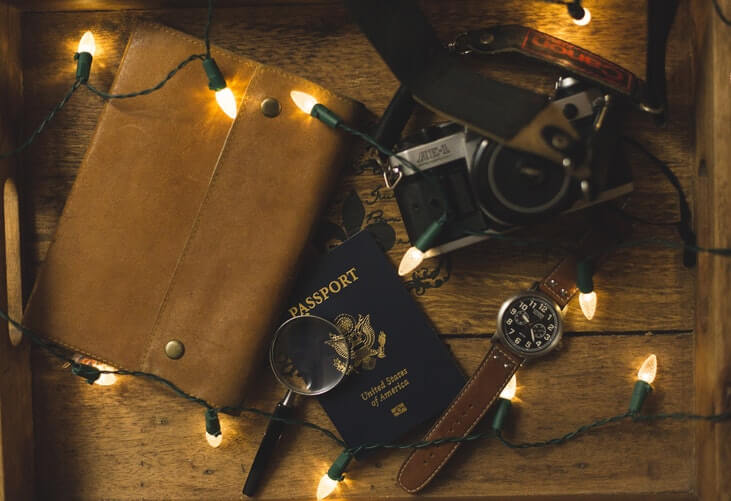
Right. And the devil is in the details. You might think I’m going to get an Italian passport, perhaps I’ll live part of the year in Italy now that I have a passport. Guess what. Italy has really severe taxes. If you’re working in Italy pulling in Italian resources, you’re going to pay a lot of taxes on that. So the idea of having another passport, again the 5 flag theory, you’re using Italy as a base for a company, but you personally aren’t spending time there, then you’re avoiding getting taxed on your income as long as the laws stay the same where you don’t get taxed on worldwide income as the US does. You have to really think through these details and get professional help. One more point I’ll ask you about, and then we will make this a wrap because this is a lot. And as you say, we are only scratching the surface, we can’t really dive into trusts and that sort of stuff too. But you mentioned you have some of your assets in gold and some in international real estate. What is special about precious metals and international real estate from a US tax point of view?
That’s the interesting thing. There’s a loophole in the IRS, there are two things you don’t have to report. It is kind of strange, but it is true, you can ask a tax expert in international law. Basically, the two things are precious metals and international real estate that are owned in your name. So if you go out and buy a piece of real estate in Mexico, for example, for $200,000. You don’t actually have to report any international real estate to the IRS. What they do want you to claim is if you make any income from that international real estate – like I said, back to the US tax code, they tax you on worldwide income- so if you make any income from that, they do want you to claim that. The same with precious metals. For precious metals, I have diversified in gold and silver. By having those, I don’t need to claim them to the IRS. I don’t need to claim them to anybody. Nobody needs to know that I have that. So it’s a way to protect a lot of my money that’s offshore that absolutely does nothing for me but grow as an asset. It’s a very good strategy to have.
Only 15% of people actually have passports in the US.
Yep, for sure. And the IBC could own precious metals and international real estate, and so forth as well. I guess since we did kind of bring up the topic of trusts, I did. I feel like we have to have some sort of at least mention of why you would want to have a trust. Especially if it’s an international or offshore trust. For those who don’t know what trust is, you probably need to define that. It’s a separate entity, and you have trustees, and you lose some level of control, but then you gain some protective abilities from having this trust set up. Could you elaborate on this?
Sure, I will. So trusts are similar to the trust structure in the US. And many of us don’t have them. But as you start growing in wealth, you want to set up a structure that protects you for many reasons. One asset protection, like we spoke of earlier, and also from a tax perspective. A trust is its own entity. And having one offshore protects you again from an asset protection standpoint. That trust will own some assets, it is protected, there is no way that other people can get to it, and it can make investments. It’s like having a company offshore, but you don’t necessarily own it. The difference is that you are the beneficiary. You’re the one who is going to gain benefits from anything this trust has. So, you can look at it from a death perspective. If you pass away and want to leave stuff to your kids, this is a great way to have a trust act on itself, make its own investments, take a look at its real estate and its precious metals and then leave that entire trust to your children.
Then you can do what I did, which is regulate how much your children would get up to a certain age. My daughter is 18 years old, and my son is 14. If something happened to me, I don’t want to leave them a whole sum of money at those ages because they just won’t know what to do. So I instruct the trust offshore with my trustee up to the age of 25 they get a certain amount every year. My daughter turns 25, and she’ll be able to make a decision on her side. Same with my son. When he is 25, he’ll make a decision from there. It’s a way to protect your assets offshore, grow them, and there’s a bit of tax strategy there. You can have the money sitting in a trust tax-free, but that goes into another conversation. Look at it as an entity that doesn’t necessarily belong to you, but you are the beneficiary of it.

Right, so you could have the house in Costa Rica owned by a trust, and you get to benefit as far as whenever you want to go visit Costa Rica, stay there, and you can stay at that property rent-free or whatever because you are a beneficiary from that trust.
That’s correct. Technically those assets belong to the trust, but they are for your use. So at your disposal. Your vehicles, your investments, and your real estate can all be owned by the trust and have its own tax strategies for which you don’t have to claim the income. There are just so many benefits, it’s just one of those things I would definitely look into.
Great. Well has been like drinking from a firehose for the past 50 minutes. I really appreciate you taking the time to spend with me and our listeners and share some wisdom and experience really under-utilized area for most people. They are thinking more in terms of how do I make money instead of how do I protect the money and how do I minimize the amount of income being paid to the taxman. Hugely valuable, I really appreciate your time, how would somebody get ahold of you if they wanted to join your mastermind, or I believe you do other speaking engagements? That’s how we met when you were at the Super Affiliate Rockstars Summit- how do our listeners get ahold of you to learn more and potentially work with you?
You can actually go to my website, www.domingosilvas.com. You’ll find my information there, sign up for my newsletter, I put out a lot of information about entrepreneurship, 8 Principles to Create Your Business, Tax Strategies, and Off-shore strategies, you’ll see a calendar of my upcoming events so we can work together and actually meet in person. So, yeah, join me there and let’s stay connected.
Cool. Thanks again, and for you, listeners, I do recommend his mastermind, it’s been eye-opening for me and for the colleagues that I’ve met through the great peer group. Catch you all on the next episode, hope this was helpful. Don’t just listen and say, “Oh, this was great content” – take some action. Find something from this podcast that you can apply for next week, even if it is just doing some digging into your heritage to see if you can maybe apply for a passport in one of these countries in Italy or Hungary or Austria or whatever. Take some action! This is really important. It’s not just the information, it’s in the application of this information you’re going to get all the benefits. Catch you all on the next episode, thanks again for listening.
Important Links
- Domingo Silvas
- Facebook – Domingo Silvas
- Twitter – Domingo Silvas
- Instagram – Domingo Silvas
- Youtube – Domingo Silvas
- Super Affiliate RockStar Summit
- EscapeArtists.com
Checklist of Actionable Takeaways










 About Domingo Silvas
About Domingo Silvas
Domingo M. Silvas, III is Domingo is a serial entrepreneur and US veteran. He is the chief executive officer of EscapeArtist. Prior to EscapeArtist, he was the co-founder of 111 Solutions, and the Chief Executive Officer of Aqua Gold International Inc, a publicly-traded US company with subsidiaries in Canada and China from July 2009 to March 2010.
LOVED THIS EPISODE
Please consider leaving me a review with Apple, Google or Spotify! It'll help folks discover this show and hopefully we can change more lives!
Rate and Review







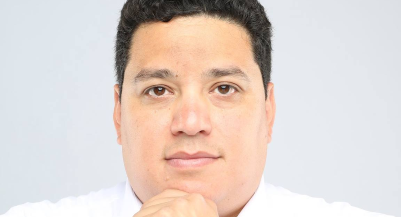
 About Domingo Silvas
About Domingo Silvas

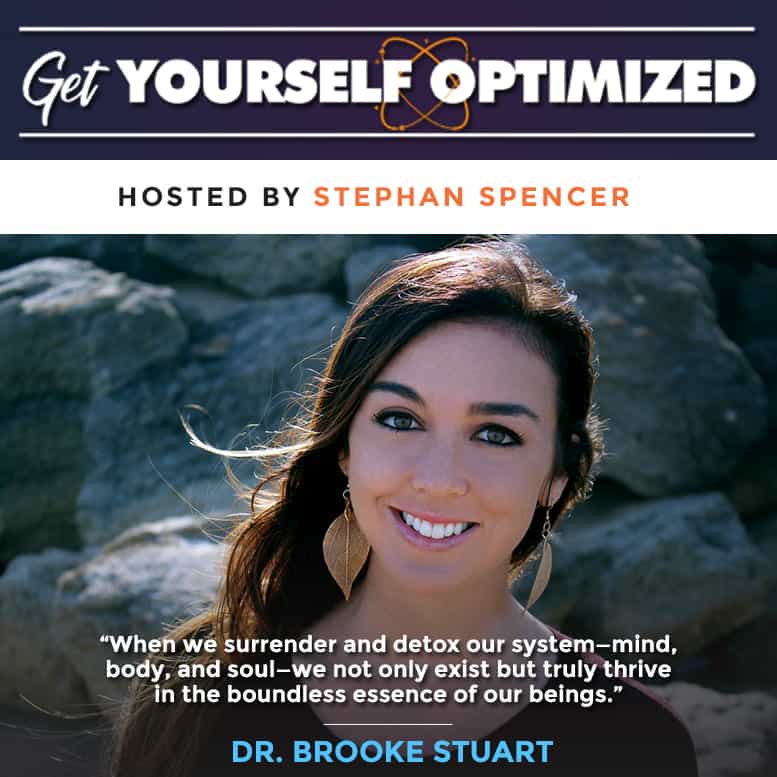

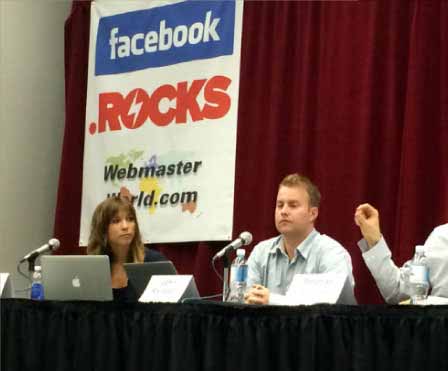

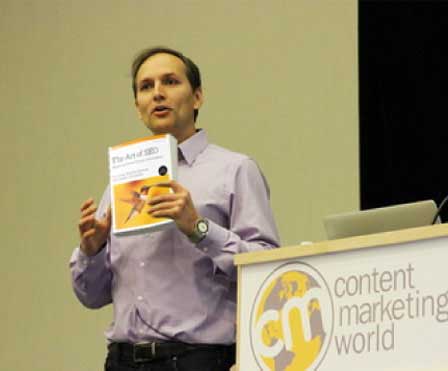

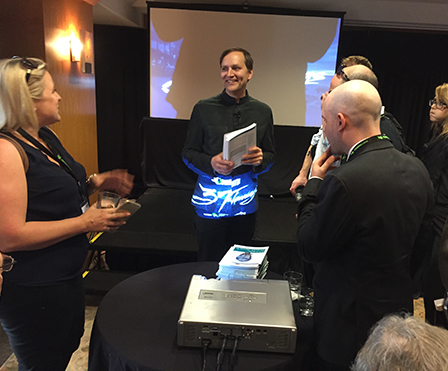
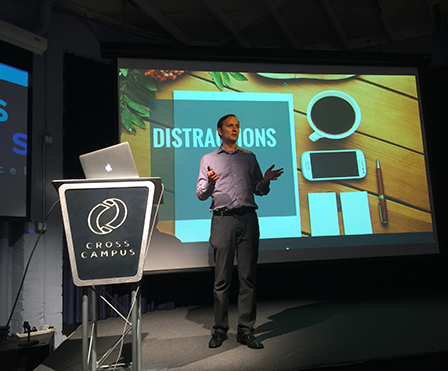


Enjoyed this podcast very much and it could not have come at a better time for our family!